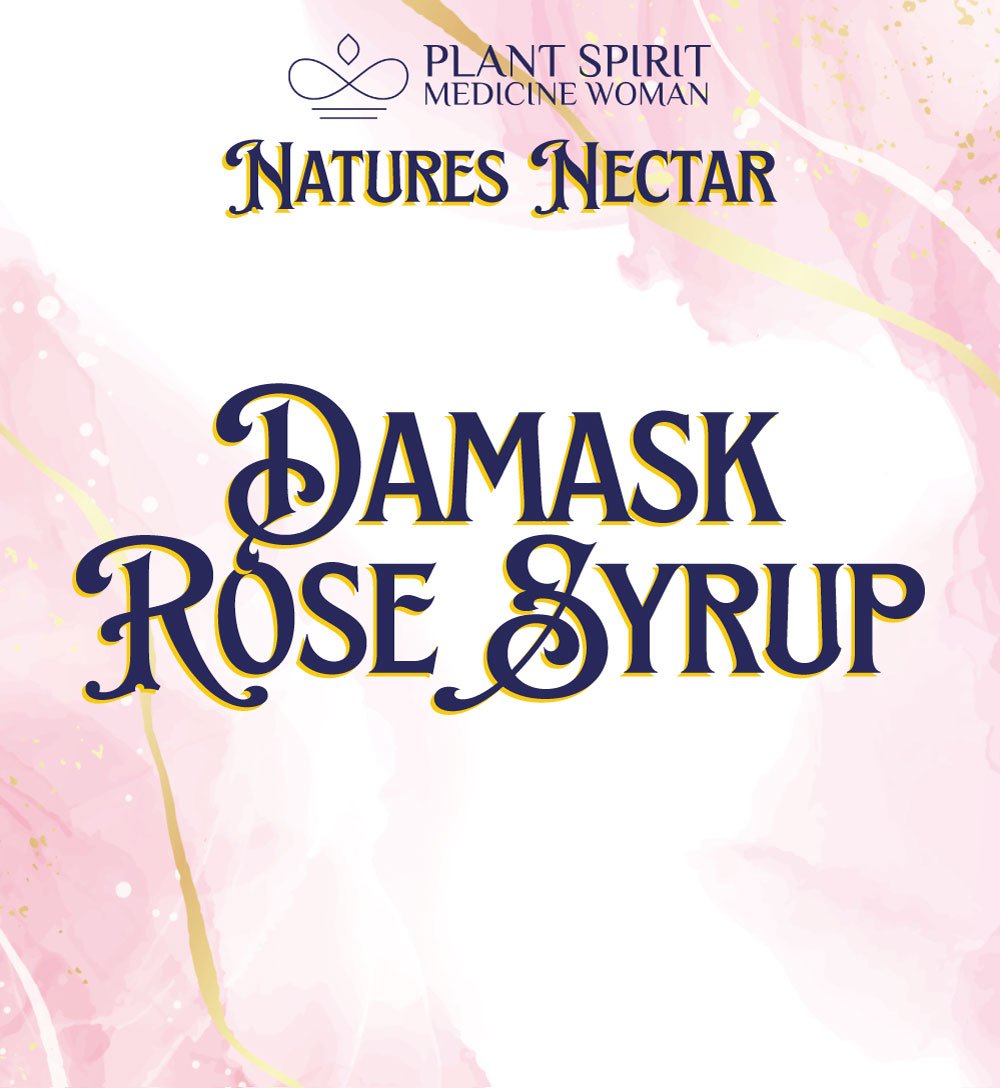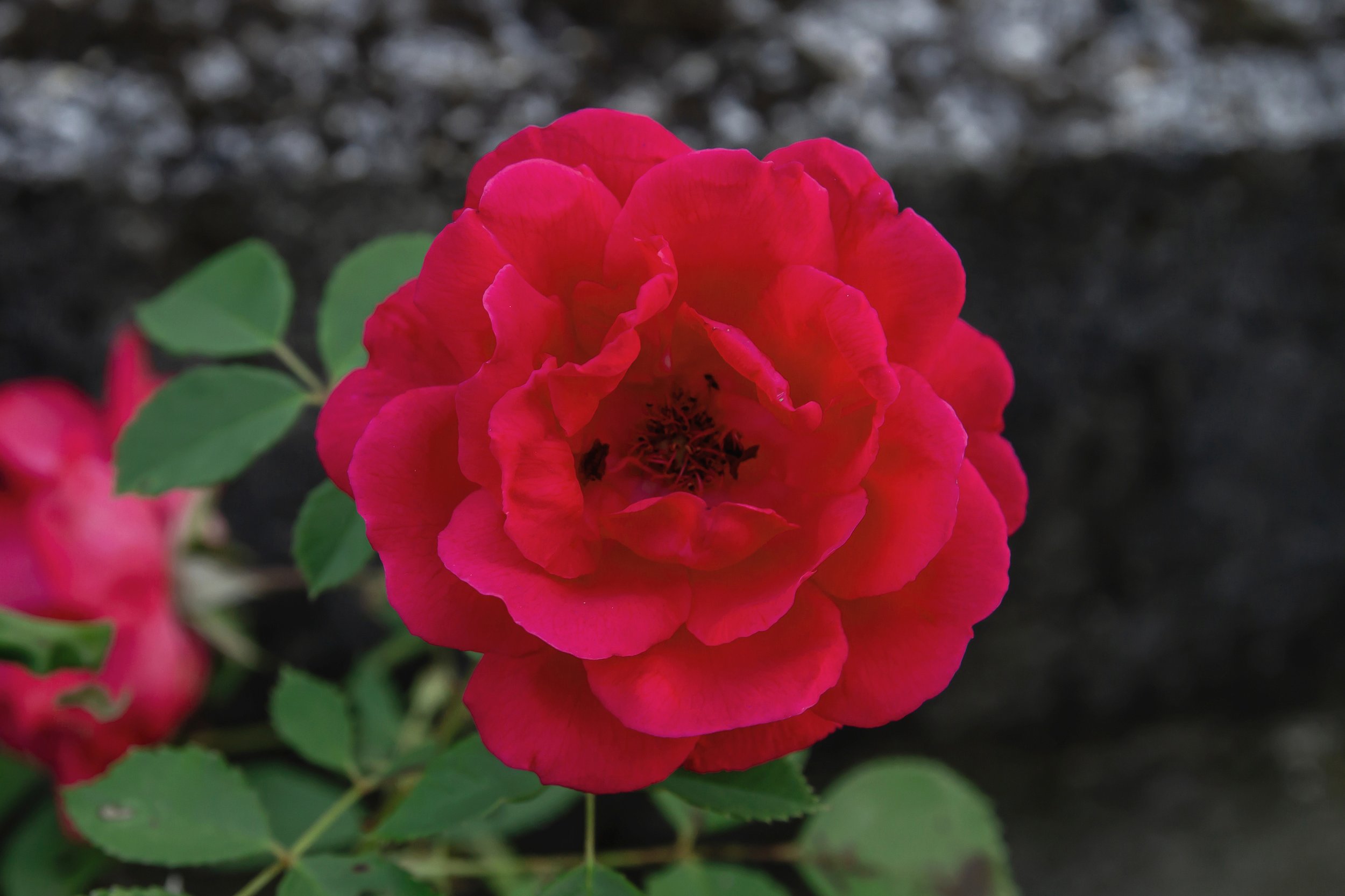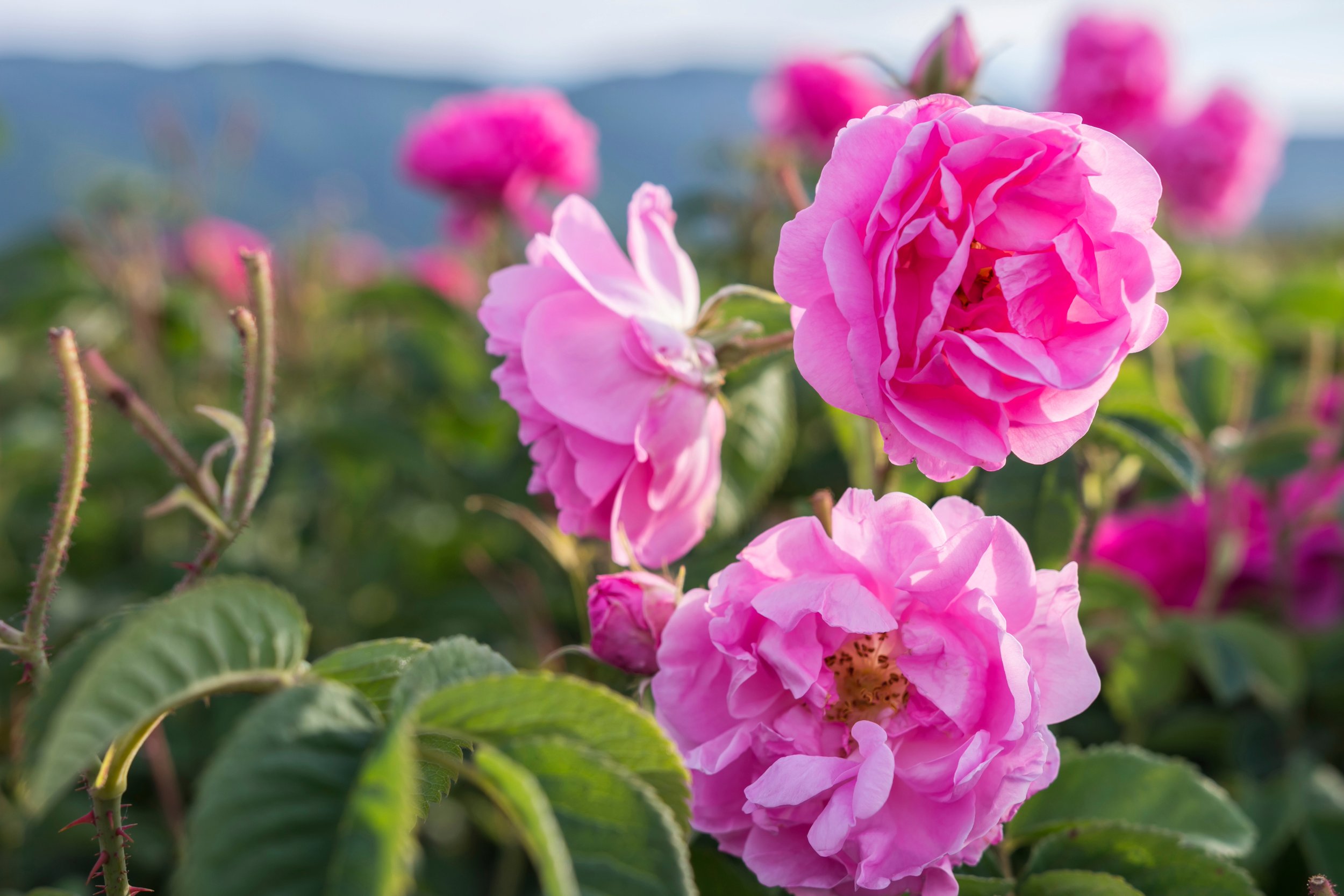Rose: Myth, Magic and Medicine
The Rose Garden, Hever Castle, Kent, May 2025
As we get closer to Rose season this summer, I feel my heart’s desire to spend quality time with them, like visiting an old friend. I grow a few highly scented varieties in my garden, I especially love visiting the grand rose gardens of Kent, with Hever Castle being a favourite. I always seek out Rosa Nostalgia there for its incredible scent and beauty – a little piece of heaven. My fascination with roses began as a child, I was naturally drawn to their beauty, but even more so by their rich, complex fragrance. I remember pinching roses from my Mum’s garden, and experimenting with making my own homemade perfumes crafted from their petals, which usually ended up as a gooey mess! Much later, during my training as a Medical herbalist that I discovered the true depth of the rose's power as a medicine.
Across cultures, the rose has been revered for its healing properties. In Chinese medicine, rose tea is used to regulate qi, or life energy, soothe the nervous system, calm digestive issues, and ease menstrual discomfort. Ayurveda also recognises the rose's ability to balance Sadhaka Pitta, promoting emotional well-being.
Traditionally, in European herbal medicine, we use Rosa damascena, Rosa gallica, and Rosa centifolia for a range of medicinal actions. Rose acts as an antispasmodic, relieving menstrual pains and regulating liver function, reducing hot flushes during menopause. Its aromatic water reduces inflammation and redness when applied topically, making it great for thread veins and rosacea, two skin problems that often arise during menopause. The aromatic water and tincture can be taken internally to soothe the nervous system, lift the spirits, and promote calm, while also healing the emotions that affect the heart. This can support us through times of grief and loss. Additionally, it can help reduce palpitations and prevent panic attacks. Rose supports the digestive system, cooling and protecting the liver, alleviating feelings of anger and frustration.
Rosa damascena
Rosa gallica
Rosa centifolia
Rose: A Symphony of Healing Actions
The actions of rose are diverse and potent, making it a valuable ally for various conditions:
Mild Sedative: Gently calms the nervous system, reducing anxiety and promoting relaxation.
Cooling Skin Astringent: Tightens the skin, reduces pores, and alleviates redness.
Antioxidant: Neutralises harmful free radicals, protecting cells.
Anti-inflammatory: Helps to reduce inflammation throughout the body.
Liver Protector (Hepatoprotective): Supports liver function and protects it from damage.
Aphrodisiac: Enhances libido and promotes feelings of desire.
Antidepressant: Lifts mood and eases symptoms of depression.
Cardioactive: Supports cardiovascular health.
Cholagogue: Stimulates bile flow, aiding digestion.
Antispasmodic: Relaxes smooth muscles, relieving cramps.
Antiviral: Shows activity against certain viruses.
Menstrual Regulator: Helps to balance hormones and regulate the menstrual cycle.
The Chemistry of Rose
The therapeutic actions of rose are largely attributed to its rich array of chemical constituents, particularly within the essential oil. Key components include:
Nerol: A monoterpenoid alcohol known for its calming, anti-inflammatory, and antioxidant properties.
Geraniol: Another monoterpenoid alcohol with antiseptic, antiviral, and antioxidant effects. It also contributes significantly to the characteristic rose aroma.
Eugenol: A phenolic compound with significant local anaesthetic, antiseptic, and antioxidant properties. It also has a warm, spicy aroma.
These are just some of the many aromatic molecules that contribute to the complex fragrance and therapeutic benefits of rose. The specific composition can vary slightly depending on the rose species and growing conditions.
A Global Tapestry of History and Folklore
Stories of roses are woven into the fabric of human history and folklore across the globe as a powerful symbol of love, beauty, and spirituality.
Ancient Greeks: The rose was associated with Aphrodite, the goddess of love. Legend tells that roses first bloomed from the tears of Aphrodite as she mourned the death of Adonis, her beloved. Roses were celebrated in poetry, mythology, and festivals, often linked to themes of passion and fleeting beauty.
The Romans continued this association, also linking the rose to Venus. They used roses extensively in celebrations, perfumes, and even medicine. Rosewater was a prized commodity, and rose petals adorned feasts and religious ceremonies.
Moving eastward, the rose held significant meaning in Persia (modern-day Iran), a land renowned for its exquisite roses and rosewater production. The Gulistan (Rose Garden) by the 13th-century Persian poet Saadi is a testament to the cultural importance of the flower, using the rose as a metaphor for life's ephemeral beauty and wisdom. Persian physicians, including the esteemed Avicenna (Ibn Sina, c. 980 – 1037 AD), played a crucial role in refining the steam distillation process for extracting pure rose oil, recognising its potent medicinal and aromatic properties. Avicenna saw the practice of extracting the essential oil and waters of the rose as capturing its very spirit, offering emotional and spiritual upliftment alongside physical healing.
In India, roses have been integral to Ayurvedic medicine and cultural practices for centuries. Rosewater is used as a cooling and soothing agent, balancing the pitta dosha. Roses are offered in temples and used in rituals, symbolising purity and devotion. The Mogul emperors were particularly fond of roses, creating elaborate rose gardens and using rose attar (essential oil) in perfumes and royal baths.
In China, where the Rosa chinensis has a long history, roses are valued for their beauty and medicinal properties. They are used in traditional Chinese medicine to regulate qi, improve circulation, and alleviate emotional imbalances.
In Western cultures, beyond the Greek and Roman traditions, the rose became a significant symbol in medieval times, associated with the Virgin Mary and often representing divine love and purity. The "War of the Roses" in England used the red and white roses as emblems of the rival houses of Lancaster and York, highlighting the flower's symbolic power in political and social spheres.
Across these diverse cultures, the rose consistently emerges as more than just a beautiful flower. It is a vessel of emotion, a tool for healing, and a potent symbol that resonates deeply within the human psyche.
Preparing the Rose: Teas, Tinctures, and Oils
There are several ways to harness the rose's medicinal power:
Tea: Infuse 1-2 teaspoons of fresh or dried petals in a cup of hot water for 5 minutes.
Tincture: Combine 1 part herb with 1 part 45% alcohol, and take 2ml three times daily.
Aromatic Water: Use 5ml in a pint of water, drink up to three times daily, or apply freely to the skin.
Essential Oil: While pure rose oil can be expensive, a reputable source offers a potent medicine for aromatherapy and topical application (always diluted in a carrier oil).
Rose combines well with other herbs. For regulating the menstrual cycle, use with Raspberry leaf. As an antidepressant or to relieve anxiety and panic attacks, use with Lemon balm and Lime Flower. As an aphrodisiac, combine with cacao. Either blended as with cacao tea, or add a little rose water or syrup and into your ceremonial cacao, it tastes like liquid Turkish delight!
The Spirit of the Rose: Love, Intuition, Protection and Peace
The spiritual properties of the rose are as compelling as its medicinal benefits. Rose has been used for centuries in love spells, to awaken the appetite for love, or heal a broken heart. Rose can boost our confidence and help us to see the beauty in others and ourselves. Perhaps one of the biggest underlying issues for us all is a lack of self-love. Rose can help us reconnect with our inner divinity, step into our power as we learn to love and appreciate ourselves.
Rose is connected to the goddess Aphrodite - the goddess of love, the planet Venus and can be used as an offering in rituals and ceremonies to encourage the love vibration into your circle.
Rose has often been used in prosperity magic, raising our vibration to make us more attractive, to enhance our confidence so we may use our charm and beauty to attract what we desire, and opening our hearts to receive.
Rose can also help us connect with our intuition and psychic abilities, whilst offering protection.
Rose helps to bring a profound sense of peace within, and helps us feel safe to share our love with others. As we find peace within, we may experience more peace in our lives and help others find peace, too.
Experience the Magic: Rose Products and Ceremonies
I invite you to experience the multifaceted magic of the rose. Explore the rose products available in my shop, including rose syrup, rose water and 2 types of Rose tea.
Or, join me, Plant Spirit Medicine Woman, for a heart-opening Ceremony that connects you with the spirit of the rose through a guided shamanic gong journey.
This June, I'm offering two opportunities:
a healing with rose ceremony at my medicine lodge in Margate,
a free online ceremony on YouTube.
Join me and experience the power of the rose, its medicine, its magic, and its power to connect us to ourselves and each other as we heal our hearts together.
Rose: A Shamanic Gong Journey to Connect with Plant Spirit Teachers
Wednesday 4th June, 2025, 6 pm, Margate, Kent.
Join Us for an Enchanting Evening: With A Gentle Infusion of Rose & A Guided Shamanic Gong Journey
Connect with the Spirit of Rose: June's Free Online Shamanic Gong Journey
Friday 6th June, 2025, 7pm, FREE, ONLINE
Join Us for Free Online Guided Shamanic Gong Journey, Connecting to a Powerful Plant Spirit Ally: Mugwort









